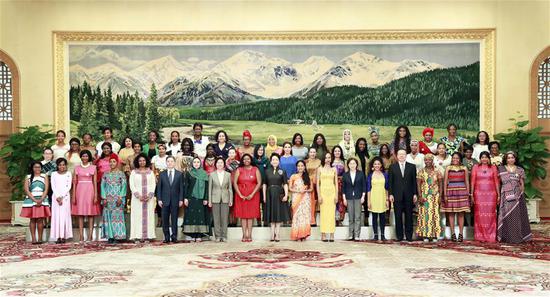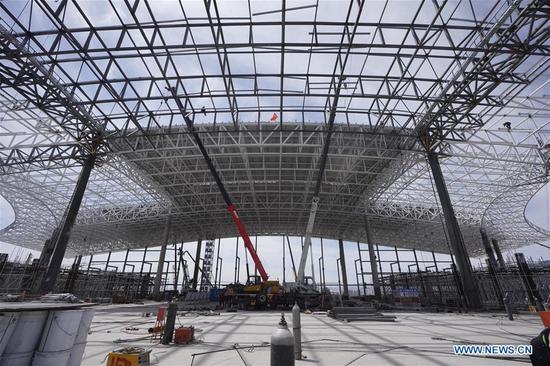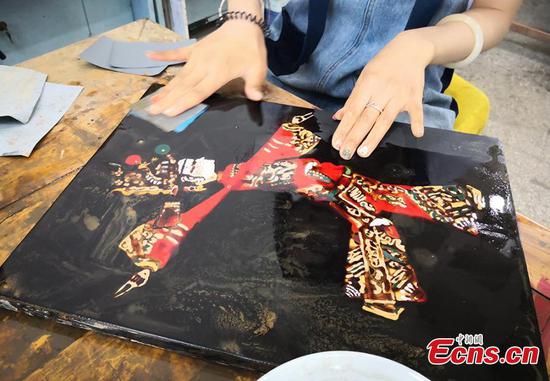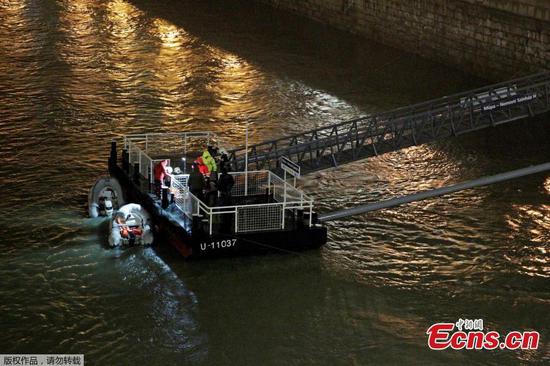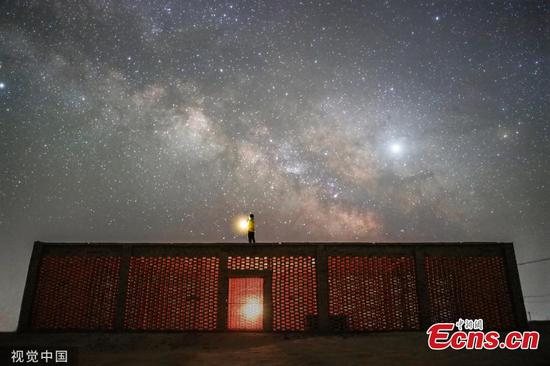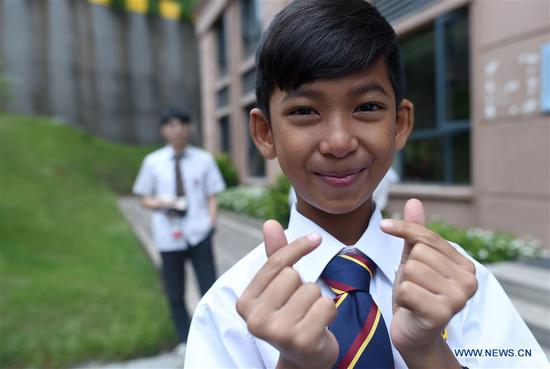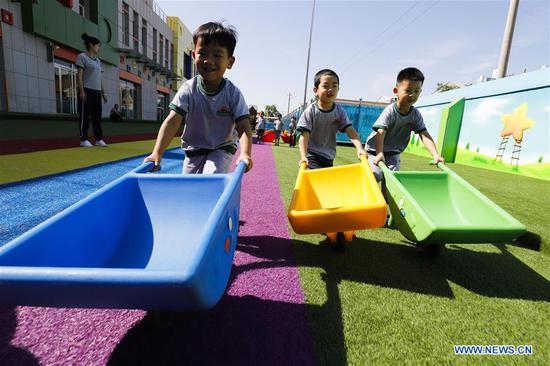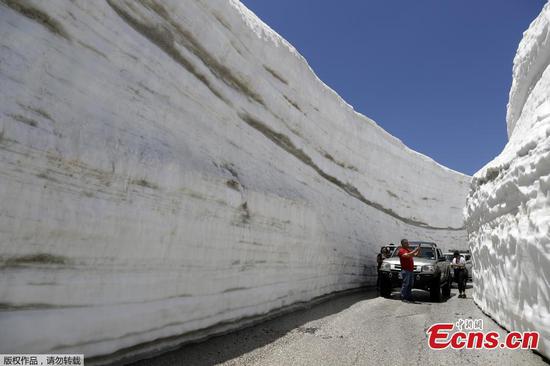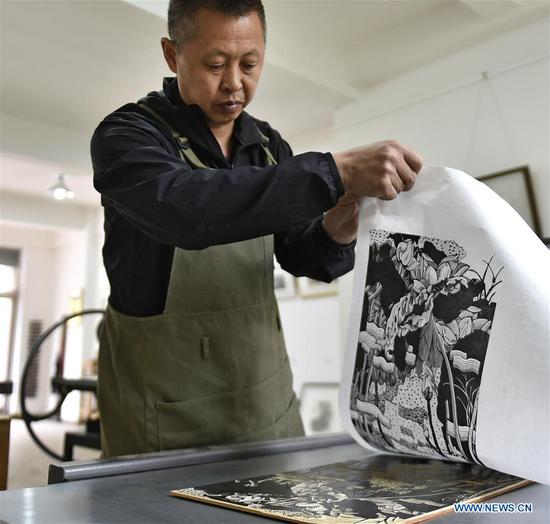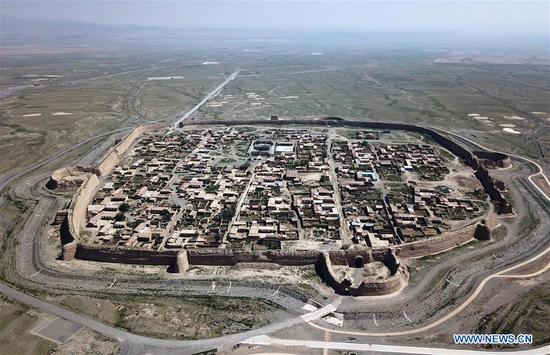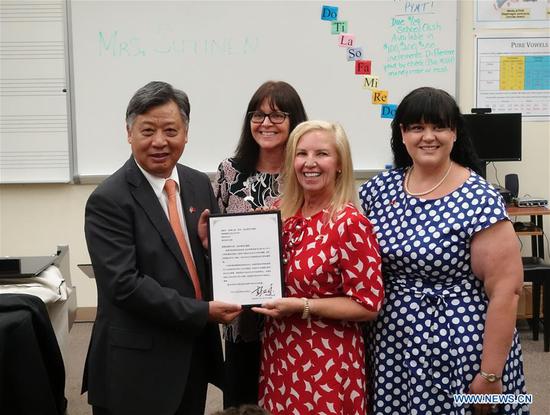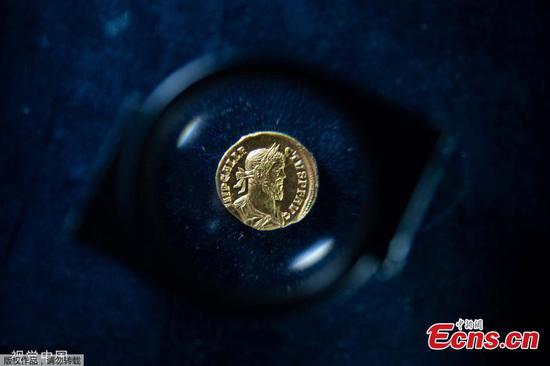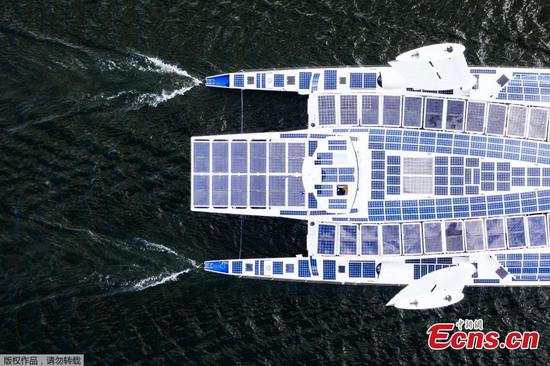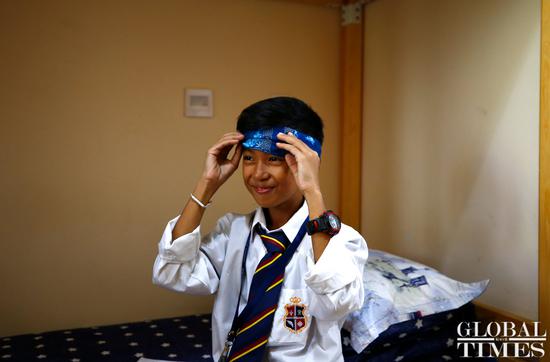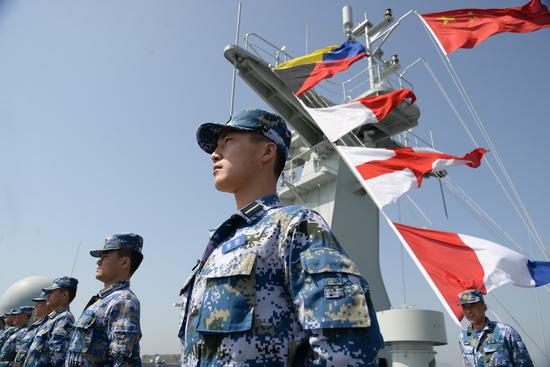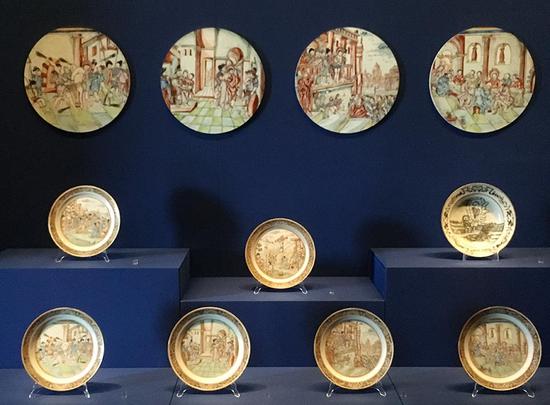State Councilor and Defense Minister General Wei Fenghe will attend the Shangri-La Dialogue which is set to open on Friday in Singapore, said Senior Colonel Wu Qian, spokesman for the Defense Ministry.
Wei's attendance will be the second time China has sent its defense minister to the international security forum held by London-based think tank the International Institute for Strategic Studies. The first time was in 2011, when General Liang Guanglie took part and delivered a speech.
General Wei is scheduled to speak on China's security cooperation with the international community and will meet heads of several foreign delegations to discuss a wide range of topics, Wu said at a news conference in Beijing on Thursday.
Responding to a question on China's considerations behind sending Wei to this year's Shangri-La Dialogue, Wu said that China chooses the head of its delegation in accordance with the situation.
He added that China and the United States are in active talks on whether Wei will meet Patrick M. Shanahan, acting U.S. secretary of defense, during the event and information on that will be published later.
Wei has been in Singapore since Tuesday and has met with leaders of the Singaporean government as part of his visit to the Southeast Asian nation, Singapore media reported.
Zhao Xiaozhuo, a senior researcher of international military relations at the PLA Academy of Military Science, said that the attendance of Wei, as the second participation of a Chinese defense minister to the Shangri-La Dialogue, shows that China places great importance on Asia-Pacific security issues and that the nation wants to use the event to voice its thoughts and ideas on these issues.
"Wei's position and rank will bring us a better opportunity to let our voice be heard by more people and have a bigger influence," Zhao said.
"In addition, his participation represents China's willingness to take part in more multilateral defense dialogues," Zhao added.
In another development, Wu said at Thursday's news conference that military relations between China and the U.S. are "generally stable" and the two militaries maintain normal communications and exchanges.
The spokesman noted that the two will have some communication and cooperation programs in the coming months.
"We hope the two militaries will expand our cooperation on the basis of reciprocity and mutual benefit, and handle differences on the basis of mutual respect," Wu said. "We should strive to make our military relations a stabilizer of the two countries' ties."
He also warned against U.S.' moves regarding Taiwan.
"Such moves were like playing with fire and hugely compromise China-U.S. military relations as well as the peace and stability in the Taiwan Straits," Wu said.









